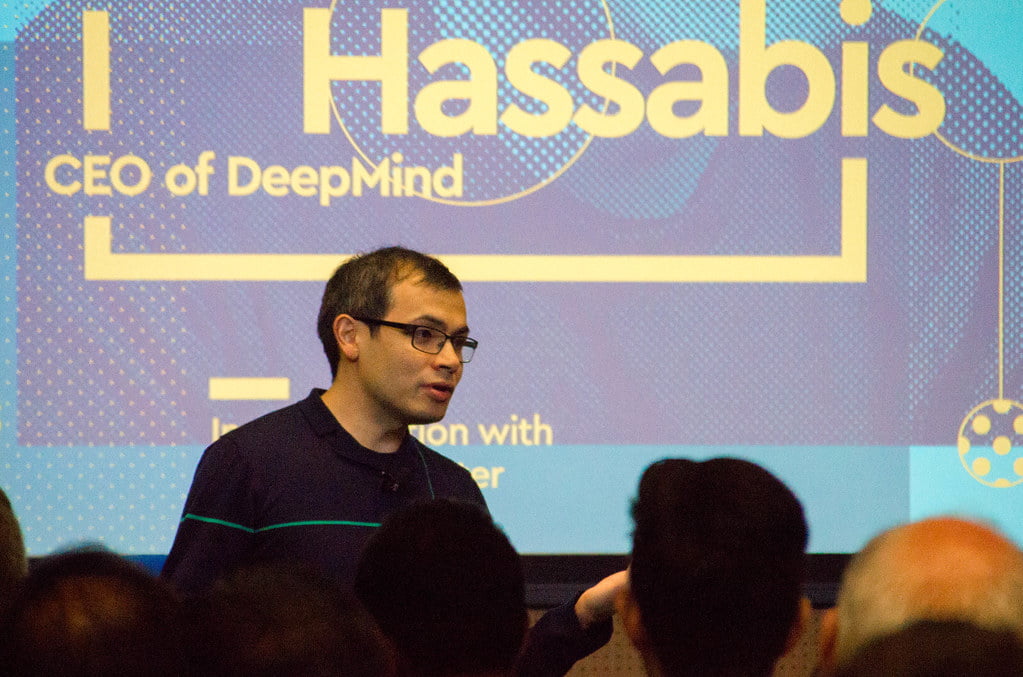Google Consolidates AI Powerhouse with DeepMind and Brain Research Units Merger

Key Takeaways
- Google’s consolidation of its AI research groups into one unit, Google DeepMind in the hope of maintaining a competitive edge in the rapidly evolving AI landscape.
- The integration of DeepMind into Alphabet’s corporate costs suggests a shift in focus towards immediate commercial applications for the AI unit.
- The leadership changes, with Demis Hassabis leading Google DeepMind and James Manyika heading Google Research, will need to prove their ability to address the challenges of responsible AI development.
Google Unites AI Research Groups
In a strategic move to stay ahead in the artificial intelligence (AI) race, Alphabet Inc.’s Google has announced the merger of its two AI research groups, DeepMind and the Brain team from Google Research. The consolidation of these two teams is expected to significantly accelerate the company’s progress in AI development, according to Google CEO Sundar Pichai.
In a recent blog post, Pichai explained that “combining all this talent into one focused team, backed by the computational resources of Google, will significantly accelerate our progress in AI.” The newly-formed entity, called Google DeepMind, signals tighter integration within Alphabet and aims to streamline research efforts to maintain Google’s competitive edge in the AI field.
Demis Hassabis to Lead as CEO of DeepMind
Demis Hassabis, the co-founder of DeepMind, will lead the new group as CEO of Google DeepMind. Hassabis has a strong background in AI, neuroscience, and computer science, making him a suitable candidate to lead the combined team in pursuit of further AI breakthroughs.
The merger comes as both DeepMind and Google Research have made significant strides in AI development. Alphabet’s London-based DeepMind has long been known for introducing AI breakthroughs, such as its work on AlphaFold, technology capable of predicting the shape of proteins, and AlphaGo, a software that taught itself to play the strategy game Go better than any human on Earth.
Google Research, on the other hand, has been responsible for “transformer” technology, which is a key building block for large language models. This technology powers the current crop of chatbots, including Google’s Bard and OpenAI Inc.’s ChatGPT.
Jeff Dean Assumes Role as Google’s Chief Scientist
Jeff Dean, who previously led Google’s artificial intelligence and research efforts, will transition into a new role as Google’s Chief Scientist. As part of the reorganization, Dean will no longer oversee large teams but will work with both Google Research and DeepMind to develop new, more capable AI systems. He will report directly to Sundar Pichai in this new capacity.
“Jeff’s vast experience in AI and research will be invaluable as we continue to push the boundaries of what’s possible in AI,” said Pichai in his blog post.
James Manyika Takes Over as Head of Google Research
James Manyika, Google’s Senior Vice President of Technology and Society, will assume the role of Head of Google Research. According to Pichai, the unit will continue its work on areas like privacy and security, quantum computing, health, climate, and responsible AI.
Manyika also expanded his purview when Google executive Clay Bavor left earlier this year, taking responsibility for emerging technology projects that Bavor had previously overseen.
Challenges Ahead in the AI Race
While the merger is a strategic move to accelerate AI development, Google has faced challenges in its efforts to develop generative AI products. Some workers have expressed concerns about potential compromises on misinformation and other harms in order to compete with the success of OpenAI’s ChatGPT, according to a recent Bloomberg report.
However, the consolidation of Google’s AI research groups into Google DeepMind is an opportunity for the company to address these concerns and maintain its leading position in AI research and development.
As the AI race intensifies, Alphabet’s Google is undoubtedly set on maintaining its competitive edge. The merger of DeepMind and Brain Research Units is a significant step towards achieving this goal and further enhancing the company’s AI capabilities.




